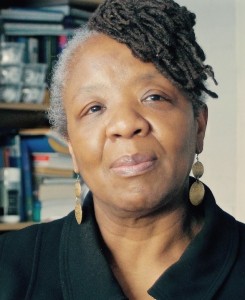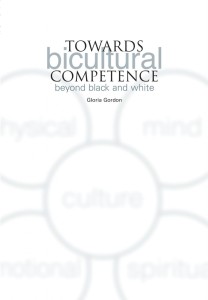 To 5 July 2018, I will have made my conscious contribution to life as a senior lecturer in the Management Department of the Business School at London South Bank University (LSBU). I have been associated with the University for a total of 36 years. My career started as a student in the National Bakery School in 1982, following which I joined the staff team in 1987 and from there moved on to the role of a Human Resource (HR) academic, professional and educator in the Business School in the mid-1990s. Undergoing a race-based crisis institutionally in 1990, I have spent the 28 years, to date, in attempting to authentically reconstruct my spontaneously shattered historically racially ‘blackened’ ego-identity. The process has seen me evolve a unique learning, teaching and research based professional identity/practice focused on achieving individual and collective transformational change in the ‘black British’ life experience. I use transformational action research strategies to this end.
To 5 July 2018, I will have made my conscious contribution to life as a senior lecturer in the Management Department of the Business School at London South Bank University (LSBU). I have been associated with the University for a total of 36 years. My career started as a student in the National Bakery School in 1982, following which I joined the staff team in 1987 and from there moved on to the role of a Human Resource (HR) academic, professional and educator in the Business School in the mid-1990s. Undergoing a race-based crisis institutionally in 1990, I have spent the 28 years, to date, in attempting to authentically reconstruct my spontaneously shattered historically racially ‘blackened’ ego-identity. The process has seen me evolve a unique learning, teaching and research based professional identity/practice focused on achieving individual and collective transformational change in the ‘black British’ life experience. I use transformational action research strategies to this end.
As an action researcher/inquirer I have continued to use the ‘on-line’ human inquiry approach practiced during my doctoral studies to the point it has become my chosen ‘design for living’. My own life-world, as a perceived member of the ‘black British’ (Caribbean) racial category’, continues therefore to be used as the research terrain and as a social experiment for understanding how to effect authentic and sustainable personal and professional transformational change in this most unique of life experiences: that of the descendant of enslaved Africans (DoEAs). This is as a life-enhancing legacy for future generations.
The above achievements were affirmed in 2002 when I became LSBU’s first National Teaching Fellow (NTF), having been previously shortlisted in 2001. My accepted research remit in 2002 was to introduce ‘Academically-Based Community Service (ABCS)’ with a strategic focus on African Caribbean learners and their communities’ onto the research portfolio of the University. This was as a continuation of my own individual learning process now being formally extended to students. My professional focus is, therefore, process-based in supporting all learners in developing their own personal and professional agentic identities and practices as world citizens and future leaders. This is to facilitate them in becoming agents of transformational change in their own right. My portolio of Developing Agentic Professional Identities (DAPI) modules support learners in the process of self-discovery.
Supporting the above learning, teaching and research interest is the unique Human Centred Unconditional Passionate Appreciative (HCUPA) philosophy which underpins my professional practice.

In 2007, the year my book: Towards Bicultural Competence: Beyond Black and White was published I also founded the Centre for British African Caribbean Studies (CBACS) and launched the The Metanoia Project 2007-2034 (Teach) and (BAC) as a social movement. Both projects pioneer the development of ‘conscious bicultural competence’ as the way forward if we are to more effectively engage with the challenges of globalisation, diversity and rapid social change. The strategic research focus placed on the black British (Caribbean) life experience provides an important platform from which to learn about the challenges of authentic human development.
As far as my identity is concerned, I am happy to share that in 2007 I reidentified myself ethnically as the emergent self-authoring and integrated British African Caribbean (BAC). This is having made the decision to replace unconscious externally imposed racial socialisation with conscious self-authored ethnic identity socialisation. Today, in 2018, I am even happier to own my new ‘achieved’ identity status as the self-authoring and transforming British African Caribbean (BAC) who is now the Ascendant of Enslaved Africans (AoEA). In this new status I am focused on pioneering a new way forward for those of us historically contained unconsciously in the stigmatised ‘black’ racial identity, kept under ‘white’ ethnic control based on institutionalised processes.
In short, my biography is a reminder of the kinds of choices we need to adopt if we are to integrate experiences and identities to live our lives as ‘whole, fully alive, experiencing, choiceful and free human beings’ …